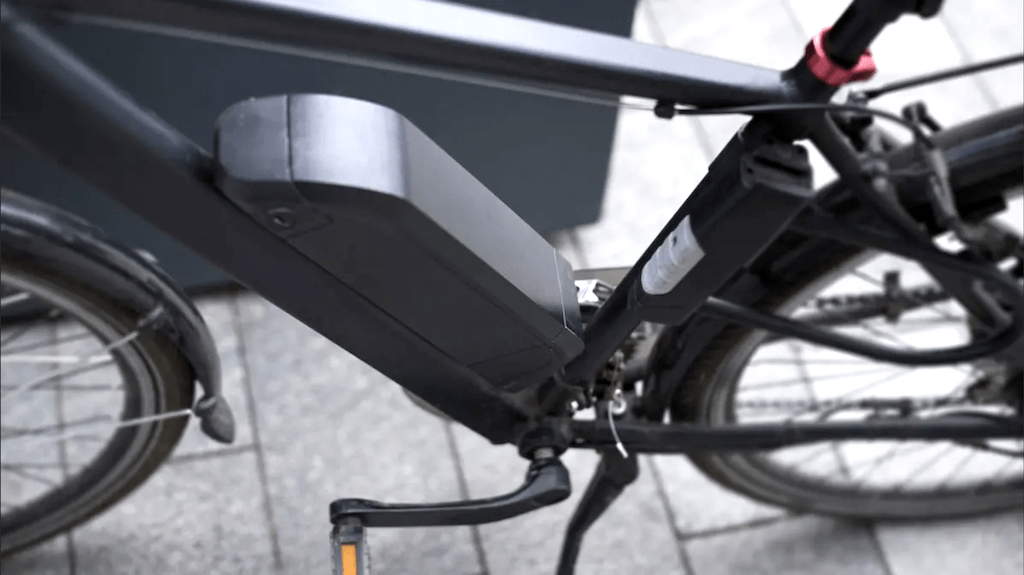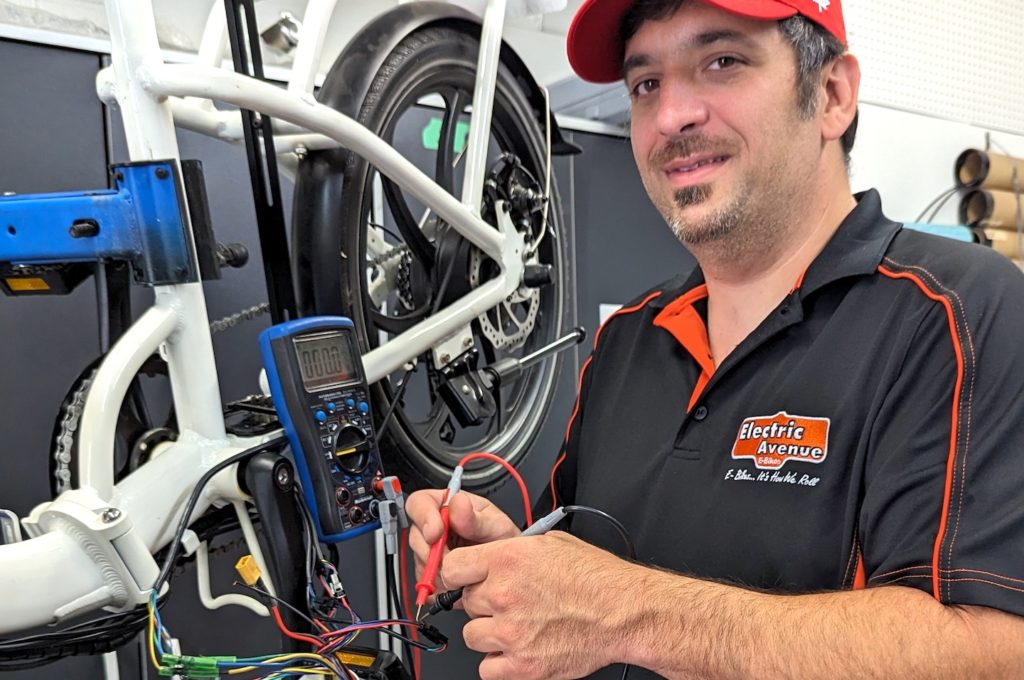
• Flip Book• eNews • eBikes • eAccessories • eCities • eSystems • eAdventures • eBikeTests • eFeatures •

• Flip Book• eNews • eBikes • eAccessories • eCities • eSystems • eAdventures • eBikeTests • eFeatures •
October 30, 2024 - The Canadian Electric Bicycle Association (CEBA) is busier than usual these days as issues and concerns regarding e-bike batteries continue to heat up. Launched in 2019 by Michael Pasquali, owner of Electric Avenue E-bikes shop in Hamilton, Ont., the association is active with local fire officials, the National Bicycle Dealers Association (NBDA) in the US, and others. CEBA’s main mission is to offer training courses to bike shops to help diagnose and repair e-bikes, along with providing best practices for e-bike batteries. We caught up with Pasquali for his take on the current situation.

Please give us a brief background of your expertise with e-bikes and lithium-ion batteries.
Michael Pasquali: I’ve been in the industry for 15 years and I am the CEO at Electric Avenue E-bikes in Hamilton, Ontario. I recognized early on that the emerging e-bike industry didn’t have an organization championing its operations in Canada and launched CEBA in 2019.
The dangers associated with lithium-ion batteries have led to fires in NYC, Toronto & other major cities. Your thoughts?
MP: There have been numerous public education campaigns to inform consumers and riders on the best practices for the safe usage, storage and handling of lithium batteries. But these have been primarily targeted to end users and not to bike dealers who are selling and/or repairing e-bikes and micro-mobility devices. CEBA was developed to bridge the gap between distributors, bike shops and consumers by focusing on helping to educate dealers, and in turn dealers can help educate consumers.
Tell us about your meetings with the Toronto Fire Dept. and other organizations on lithium-ion batteries.
MP: We were invited to the Toronto Fire Department’s lithium- ion battery working group and presented our lithium battery safe handling, usage and storage best practices, as well as addressing the gaps in our industry. This caught the attention of the Ontario Fire Marshal, and we were asked to be a panellist at the Charged for Life battery symposium.
You’ve also worked with the National Bicycle Dealers Association in the US… tell us more.
MP: The NBDA is a well-respected organization in the USA, and their President Heather Mason is a great leader. She organized and formed a Bicycle Industry E-bike Safety and Standards Panel with representatives from across the US and Canada — CEBA is a panellist. The meetings discuss current issues and gaps for dealers selling e-bikes. Topics discussed range from lithium battery best practices, to insurance, fire safety, servicing e-bikes, compliance, supplier best practices, codes standards and certifications. It’s great to see experts in their respective fields come together to provide insights and specialized knowledge that the industry needs — from UL Solutions, NYC Fire Department, Insurance experts and folks like Larry Pizzi, Chair of the Electric Bicycle Subcommittee at People For Bikes, who you recently interviewed.
What effort is the cycling industry taking to address the problem as e-bikes are gaining in popularity?
MB: Organizations pertaining to bicycles and e-bikes could be better aligned on the issues that affect our industry. Particularly with e-bikes the focus is very fragmented, and more collaboration would bring a louder voice to represent the industry in addition to gaining a broader perspective. While CEBA’s primary focus is electric bikes, and other organizations focus on cycling in general, there is plenty of overlap and I believe that if we could align our interests, we would present a better position for cycling as a whole.
What steps need to be taken to address the problem?
MP: There are several problems, issues and gaps that need to be addressed. Establishing mandatory industry standards would be a great starting point to minimize the related safety issues. Currently we have a standard for lithium batteries UL 2271, as well as UL 2849 which covers the whole e-bike. But these standards are not yet mandatory in Canada and the USA. Reputable manufacturers and distributors are ensuring that their e-bikes meet both UL standards to increase safety, and give consumers confidence when purchasing e-bikes that have been certified. Continuing to educate dealers and the public is another important step in creating a safer environment.
How is CEBA assisting with solutions for the e-bike community and industry?
MP: CEBA offers online courses with expertise and proven techniques for bike shops to service any make or model of e-bike that has a brushless hub motor, which is one of the most common types on the market today. As well we work with distributors to assist in ensuring their dealers are well- trained to service their respective products. We also teach the safe handling of lithium batteries, including storage, charging, disposal and best practices. One of CEBA’s main goals is to have e-bike technicians recognized as a trade and for every dealer to have a certified technician — similar to the auto industry.